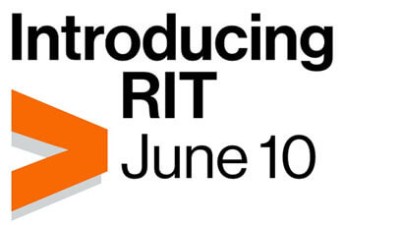Imaging Science Seminar: Deep Learning in Spiking Neural Networks for Spatio-Temporal Data: Methods, Systems, Applications

Imaging Science Seminar
Deep Learning in Spiking Neural Networks for Spatio-Temporal Data: Methods, Systems, Applications
Dr. Nikola Kasabov
Professor of Knowledge Engineering
Auckland University of Technology NZ;
George Moore Chair Professor of Data Analytics
Ulster University UK
The talk is about the third generation of artificial neural networks, the spiking neural networks (SNN) also named neuromorphic systems. These networks are capable of deep, incremental learning of temporal or spatio-temporal data; enabling the extraction of knowledge representation from the learned data; and tracing the knowledge evolution over time from the incoming data. This allows the development of new types of explainable AI systems.
Abstract:
The talk is about the third generation of artificial neural networks, the spiking neural networks (SNN) also named neuromorphic systems, which are not only capable of deep, incremental learning of temporal or spatio-temporal data, but also enabling the extraction of knowledge representation from the learned data and tracing the knowledge evolution over time from the incoming data, thus allowing the development of new types of explainable AI systems. Similarly to how the brain learns, these SNN models do not need to be restricted in number of layers, neurons in each layer, etc. as they adopt self-organising learning principles of the brain. This is illustrated on an exemplar SNN architecture NeuCube (free software and open source, along with a cloud-based version, are available from www.kedri.aut.ac.nz/neucube and www.neucube.io). Case studies are presented of neuroimaging brain data and environmental data modelling, using deep incremental and transfer learning algorithms. These include: predictive modelling of brain and cognitive data using longitudinal MRI data; predicting environmental hazards and extreme events; fast moving recognition and other image processing and computer vision problems. Hardware realisation of neuromorphic computational platforms is mentioned. These are massively parallel computers of thousands and millions of artificial neurons with low power consumption and ultra- high speed of processing. It is demonstrated that brain-inspired SNN architectures, such as the NeuCube, allow for deep learning, deep knowledge representation and knowledge transfer between humans and machines through building brain-inspired Brain-Computer Interfaces (BI-BCI). Reference: N. Kasabov, Time-Space, Spiking Neural Networks and Brain-Inspired Artificial Intelligence, Springer, 2019, https://www.springer.com/gp/book/9783662577134.
Speaker Bio:
Professor Nikola Kasabov is Fellow of IEEE, Fellow of the Royal Society of New Zealand, Fellow of the INNS College of Fellows, DVF of the Royal Academy of Engineering UK. He is Professor at the School of Engineering, Computing and Mathematical Sciences at Auckland University of Technology, New Zealand and also George Moore Chair Professor of data analytics at the University of Ulster UK. Kasabov is the Immediate Past President of the Asia Pacific Neural Network Society (APNNS) and Past President of the International Neural Network Society (INNS). He is member of several technical committees of IEEE Computational Intelligence Society and Distinguished Lecturer of IEEE (2012-2014). He is Editor of Springer Handbook of Bio-Neuroinformatics, Springer Series of Bio-and Neuro-systems and Springer journal Evolving Systems. He is Associate Editor of several journals, including Neural Networks, IEEE TrNN, Tr CDS, Information Sciences, Applied Soft Computing. Kasabov holds MSc and PhD from TU Sofia, Bulgaria. His main research interests are in the areas of neural networks, intelligent information systems, soft computing, bioinformatics, neuroinformatics. He has published more than 650 publications. He has extensive academic experience at various academic and research organisations in Europe and Asia, including: TU Sofia Bulgaria; University of Essex UK; University of Otago, NZ; Advisory Professor at Shanghai Jiao Tong University and CASIA Beijing, Visiting Professor at ETH/University of Zurich. Prof. Kasabov has received a number of awards, among them: Doctor Honoris Causa from Obuda University, Budapest; INNS Ada Lovelace Meritorious Service Award; NN Best Paper Award for 2016; APNNA ‘Outstanding Achievements Award’; INNS Gabor Award for ‘Outstanding contributions to engineering applications of neural networks’; EU Marie Curie Fellowship; Bayer Science Innovation Award; APNNA Excellent Service Award; RSNZ Science and Technology Medal; 2015 AUT Medal; Honorary Member of the Bulgarian, the Greek and the Scottish Societies for Computer Science. He has supervised to completion more than 50 PhD students. More information of Prof. Kasabov can be found from: https://academics.aut.ac.nz/nkasabov.
Intended Audience:
Undergraduates, graduates, and experts. Those with interest in the topic.
Event Snapshot
When and Where
Who
Open to the Public
Interpreter Requested?
No








